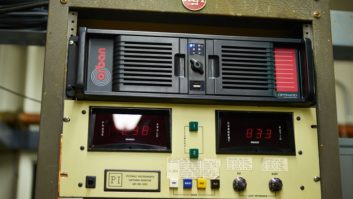Several groups disagreed with various aspects of the FCC’s LPFM order from December.
Now, oppositions to those various Petitions for Reconsideration have been filed with the commission to Docket 99-25.
Petitions for Reconsideration were filed by five groups: Michael Couzens and Alan Korn, Prometheus Radio Project, Let The Cities In, REC Networks and LifeTalk Radio.
Here, we’ll focus on one petition from Let The Cities In, a nationwide group of 20 low-power FM radio supporters, to allow licensing of stations below the FCC’s lower threshold of 50 watts, in a power level range of 50 to 100 watts. The group says this change would allow construction of local radio stations in urban areas where there is no room on the FM band for higher-power stations.
Public Media of New England Inc., nonprofit owner of Internet and cable radio station WHAV and an impending FM radio station applicant, supports the concept. “The FCC is directed to assure that spectrum is abundantly available for both translators and LPFMs, with license allocations turning on ‘the needs of the communities.’ However, in many (if not most) of America’s urban areas, this statutory mandate simply cannot be met under the FCC’s current Report & Order,” stated WHAV President/General Manager Tim Coco in the filing. Coco urged the FCC to give new, local radio service parity with translators.
NPR says the FCC decided to eliminate the 10-watt power class and not to establish a 50 watt LPFM service; the petition to reverse these decisions should be denied because the agency has already decided these issues, according to NPR.
NAB, too, said the petition should be denied, stating in its filing the petition “offers no basis for the commission to alter” its earlier decision. The FCC rejected calls for a new class of LP50 stations because no one raised that issue in the Notice of Proposed Rulemaking, according to the broadcast lobby.
The commission also found that LP50s would face many of the same technical deficiencies as 20-watt LPFMs, which the agency eliminated in its December LPFM order, according to NAB, which stated LP50s and LP10s would have had “paltry service areas” but could also create large areas of interference for existing FM service.
“Overall, any benefit that LPFM stations operating at 50 watts or below may provide would be dwarfed by the inefficient spectrum use and negative impact caused to the FM band, existing radio service and listeners,” wrote NAB.











